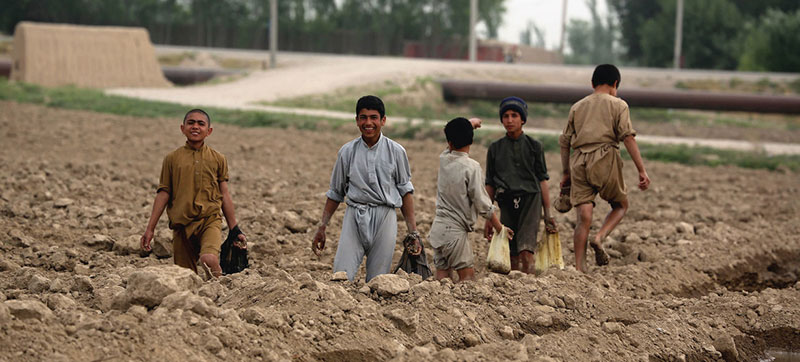 Child Labour
Child Labour New York: Effective action and strong leadership are essential to end child labour by 2025, the head of the Food and Agriculture Organization (FAO) said on Tuesday.
Qu Dongyu, the FAO Director-General, was among UN agency chiefs addressing the opening of the Global Solutions Forum on child labour.
The two-day virtual meeting aims to identify and expand solutions to stamp out the practice, a serious violation of human rights, in line with the Sustainable Development Goals (SDGs).
Millions worldwide affected
Some 160 million boys and girls worldwide, almost one in 10, are forced into work. The majority, 112 million, or around 70 per cent, work in crop production, livestock, forestry, fisheries and aquaculture.
But with the 2025 deadline fast approaching, Mr. Qu stressed that effective action and “strong and coherent leadership from agri-food stakeholders across the globe, is critical”.
Child labour is a serious violation of human rights, FAO explained. It deprives boys and girls of their childhood, their potential and dignity, while also being harmful to their physical and mental development.
Although not all work carried out by children is considered child labour, much of it is not age-appropriate, the agency said, and many vulnerable families, especially in rural areas, have no choice.
‘A moral responsibility’
Contributing factors include low family incomes, few livelihood alternatives, limited access to education, inadequate labour-saving technologies, and traditional attitudes surrounding children’s participation in agriculture. The COVID-19 pandemic has added to these issues.
Kailash Satyarthi, an Indian social reformer and co-recipient of the 2014 Nobel Peace Prize, along with Malala Yousafzai, spoke about the devastating impacts.
“Nothing is as brutal as the death of a child’s dream,” said Mr. Satyarthi, who campaigned against child labour in his homeland. “We should feel the moral responsibility that we have to fulfil the dreams of these children.”
Listen to an interview with Kailash Satyarthi here.
The Global Solutions Forum is being held in the context of the International Year for the Elimination of Child Labour. It brings together representatives from various sectors, including government ministries, farmers' organizations, workers' groups, and development banks, businesses, as well as children, youth advocates, and former child labourers.
Prolonging poverty
The event is organized by FAO alongside sister UN agency, the International Labour Organization (ILO), together with the International
Partnership for Cooperation on Child Labour in Agriculture (IPCCLA) and Alliance 8.7, a global initiative against forced labour.
In his remarks to the forum, Guy Ryder, the ILO Director General, underlined that child labour did not have to continue indefinitely.
“Child labour is not an escape road from poverty, it actually prolongs poverty; it makes poverty intergenerational. We have to help people out of this vicious circle of poverty and that’s not an easy task,” he said.
Focus on rural families
Henrietta Fore, Executive Director of the UN Children’s Fund, UNICEF, outlined some of the solutions, which involve providing income support for vulnerable families, better healthcare and education, and expanding social and child protection.
“If we want to make a difference in ending child labour, this is where we need to focus significant efforts: in rural areas, with families, where agriculture is an important source of livelihoods,” she stressed.
Participants also heard from Pope Francis, whose message was delivered by Monsignor Fernando Chica Arellano, Ambassador of the Holy See.
“Protecting children means decisive measures to support smallholder farmers, so that they are not obliged to send their children into the fields in order to increase their incomes, which, being so low, do not allow vulnerable farming families to maintain their households with dignity,” he read.
FAO is promoting efforts to boost the incomes of rural families so that they can send their children to school rather than have them work.
For example, the agency is supporting the governments of Burkina Faso, Cambodia, Lebanon, Mali, Niger, Malawi, Pakistan, Uganda and Tanzania, in addressing child labour as an integral part of national agricultural policies.
Support Our Journalism
We cannot do without you.. your contribution supports unbiased journalism
IBNS is not driven by any ism- not wokeism, not racism, not skewed secularism, not hyper right-wing or left liberal ideals, nor by any hardline religious beliefs or hyper nationalism. We want to serve you good old objective news, as they are. We do not judge or preach. We let people decide for themselves. We only try to present factual and well-sourced news.







